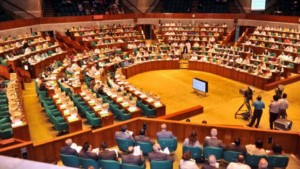by Liina Carr on 16th December 2019 @liina_carr
The principle of ‘sustainability first’ should become the golden thread unifying all EU actions.
While recent Fridays for Future and Extinction Rebellion actions have heightened the focus on climate change, sustainability is not just about the environment. In calling for climate justice, trade unions demand a far-reaching transformation of the economy, a ‘just transition’ that protects workers while moving rapidly to cut emissions. Europe will never have a sustainable future if thousands of people are thrown out of work. The European Trade Union Confederation welcomes the ‘Green Deal for Europe’ of the European Commission president, Ursula von der Leyen, but this must integrate all dimensions of sustainability: social, economic and environmental. This Green Deal should have a significant budget and investment plan to meet the climate goals recommended by science—mobilising new, not reallocated, funds. It should prioritise social justice and implementing the European Pillar of Social Rights and the United Nations’ Sustainable Development Goals ought to form the foundation of EU policy.
‘Sustainability first’ should be the thread unifying all EU actions, and social partners must be closely involved at every stage of policy-making to mitigate the social impact of a much-needed zero-emissions economy. We believe a sustainable economy can create good jobs in many sectors. But it is a mistake to neglect the challenges and dangers. A just transition means governments, unions and employers working together to anticipate and manage change.
Key role
Transition challenges vary between regions and sensitive sectors such as mining and the car industry. Subsidies that damage the environment must be phased out, while EU structural and social funding should be redirected to upskilling and retraining workers and creating green jobs. Trade unions have a key role in preparing and representing workers in transition.
Climate policy should review international trading conditions, promote short and local economic circuits, and not mean relocating production outside Europe. Managing social impacts must be built into the design and implementation of policies in all these areas.
Involving and getting the support of workers to move towards a sustainable society requires more democracy at work. Social dialogue and workers’ information, consultation and participation rights need to be strengthened at all levels. The EU must take responsibility for promoting and supporting collective bargaining so that trade unions and workers can shape sustainable workplaces and a green economy.
The manufacturing sector is the basis of the European economy and we need to preserve it, through a coherent EU industrial strategy that supports sustainable development. New technologies will play an important part in transforming the industry, but workers must have a say in their introduction.
Fiscal rules
Strong public services and social protection are also key to sustainable development. We have urged the EU to adopt its fiscal rules—especially the Stability and Growth Pact—to allow investment in sustainable infrastructure and social protection.
Member states should carry out impact assessments to ensure the costs of decarbonisation policies are distributed fairly and do not increase social inequalities or penalise the poorest in society, for example through higher energy costs.
The Green New Deal must target social inequality as a priority. We cannot allow the climate emergency to turn into a social emergency.
This first appeared in the European Commission’s Social Agenda
This column is sponsored by the European Trade Union Confederation (ETUC).
(Liina Carr was re-elected confederal secretary of the European Trade Union Confederation at the ETUC Congress in 2019.)
– Social Europe




